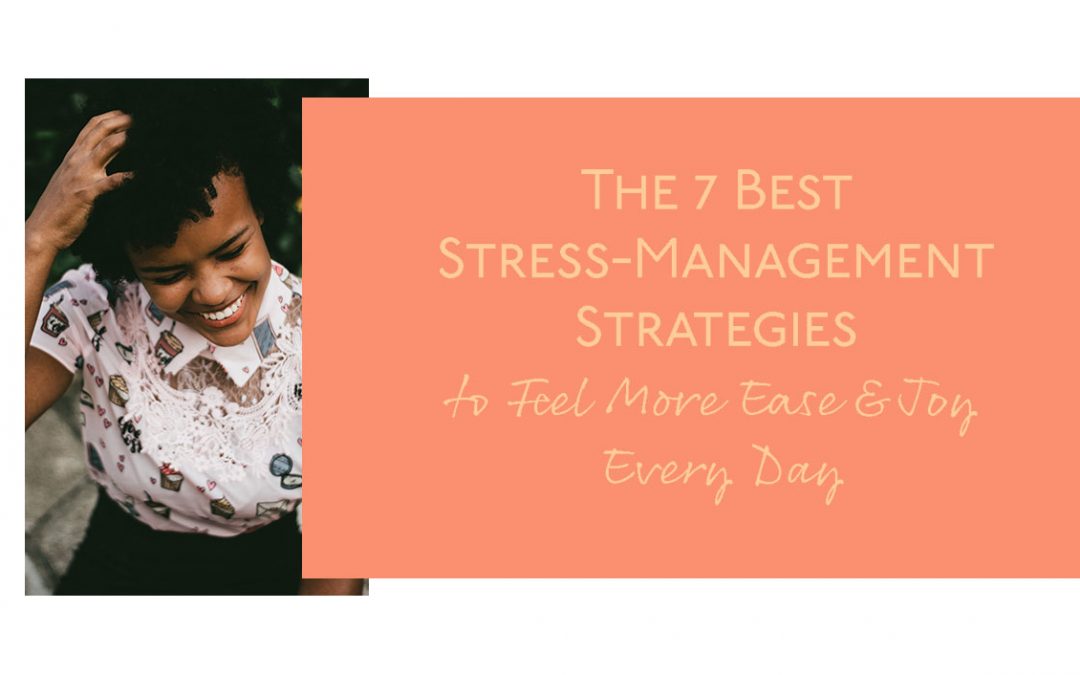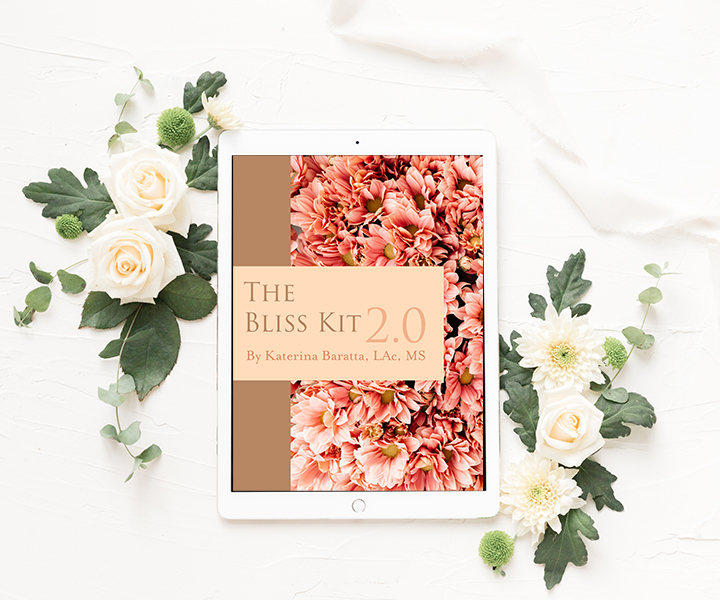If you want to reduce stress and anxiety, you’re going to need to tackle stress-management holistically.
Short bursts of stress aren’t actually bad.
In fact, they can be really helpful.
The stress hormone cortisol, for example, is essential for the proper function of pretty much every organ system in your body. (1)
But the problem is, most of us don’t just have short-bursts of stress in our lives.
Instead, stress has become a habit.
We wake up stressed and we go to bed stressed, with precious little time for ease or joy in between.
This is no way to live friends!
Not only is chronic stress a real drag to deal with, but it’s also the root cause of pretty much every health issue on the books.
And I’m talking both mental and physical issues here.
Everything from diabetes and heart disease to hypochondria and depression can be traced back to chronic stress.
Hang on, don’t panic.
Yes, the outlook is grim when you don’t do anything about it.
But there are SO many awesome stress-management strategies you can use to make this situation better.
And as far as stress-management goes, you’ll want to start here:
1. Food
The food you eat can either stress you out or calm you down.
Yes, literally.
Because not only does food provide the building blocks for your physical body, it’s also one of the biggest drivers of your body’s chemistry.
And this includes pumping those feel-good neurotransmitters like GABA and serotonin through your system. (2, 3)
So the first thing you want to do if you want to reduce stress and anxiety is to look at whether your diet is supporting inflammation or the friendly bacteria in your gut.
And if you aren’t eating enough gut-healthy foods, start adding more of them in.
Click here to read about 5 ways to boost your mood by healing your gut.
2. Sleep
The second stress-management strategy you’re going to want to prioritize is sleep.
Sounds simple enough, right?
But way too many people aren’t getting enough of it.
In order for your mind and body to function optimally, most of us need at least 8.5 solid hours in bed.
Keep in mind, this is an average amount.
You might need more than this, but this is the minimum for pretty much everyone.
Have trouble with insomnia?
No worries.
Click here to read about 5 Ways to Get Over Insomnia Naturally.
3. Movement
You already know that it’s important to exercise.
But I’m not just talking about a sweaty half-hour at the gym a few times a week (though those can be helpful too.)
To really use movement as a stress-management strategy, try moving your body more throughout the day.
Even a brisk 10-minute walk after lunch or a 3-minute stretching session after you’ve been sitting at the computer for an hour can make a huge impact on your physiology.
Plus, the more time you can spend focused on getting yourself to feel good in your body, the less time you’re focusing on that nagging to-do list in your head.
And yes, regular movement throughout the day will help you build up more resiliency, and it’ll lift your mood too.
4. Spend Time in Nature
A growing body of evidence is showing what the sages in ancient China knew all along:
Nature heals.
Spending time in nature has profound effects on your health, reduces stress, and promotes healing. (4)
So whether you spend a few times admiring the potted plant on your desk in the morning, or you go for a barefoot jog in the woods, the more time you can immerse yourself in nature, the less stressed out you’ll feel.
5. Meditation
Think you can’t meditate?
Turns out you can.
Most people are intimidated by the idea of meditation before they start.
But meditation is really just like taking a mental vacation every day.
There are as many ways to meditate as there are teachers teaching it.
But if you want to get started, you can read more about starting up a meditation practice easily by clicking here.
6. Mindset
The thoughts that float through your mind fall into 3 categories:
Stressful, neutral, or good-feeling.
If you’re stressed out, it means that your dominant thought-patterns are stressful.
But you have more power over your thoughts than you think!
Click here to download my (free) printable guide with 15 mindset shifting mantras that’ll help you flip the switch from stressful to neutral to feel-good with a lot more ease.
And you can also read more about turning negative thoughts around by clicking here.
7. Medicinal Herbs
And finally, a way underutilized stress-management strategy that I can’t recommend more highly is the use of medicinal herbs.
Click here to read about the 11 best herbs I recommend for stress and anxiety.
Now I’d love to hear from you!
What are your favorite stress-management strategies?
Leave a comment below, because what works for you is sure to help someone else who’s struggling.
References:
1. https://www.ncbi.nlm.nih.gov/books/NBK538239/
2. https://www.ncbi.nlm.nih.gov/pmc/articles/PMC4594160/
3. https://www.ncbi.nlm.nih.gov/pmc/articles/PMC4662178/
4. https://e360.yale.edu/features/ecopsychology-how-immersion-in-nature-benefits-your-health





